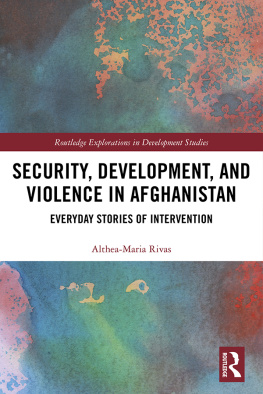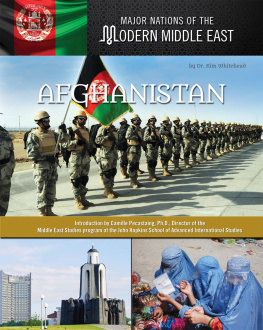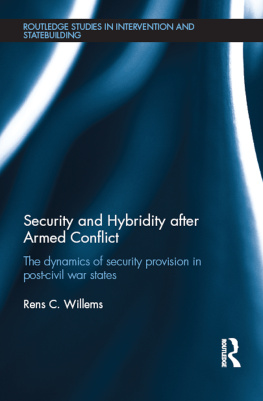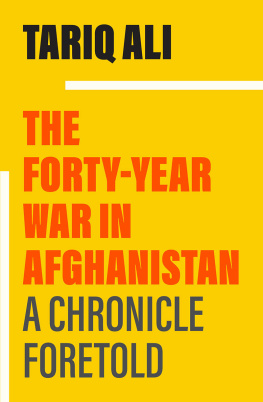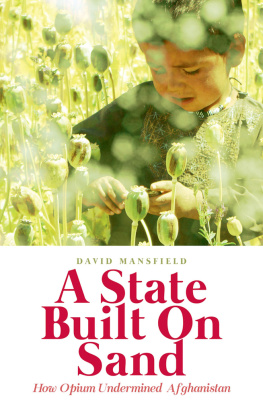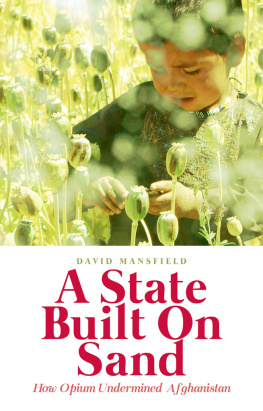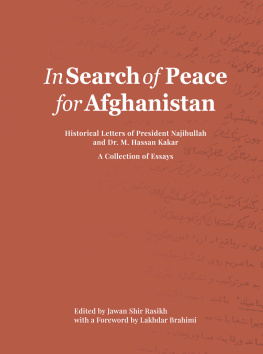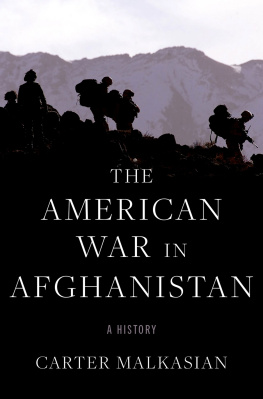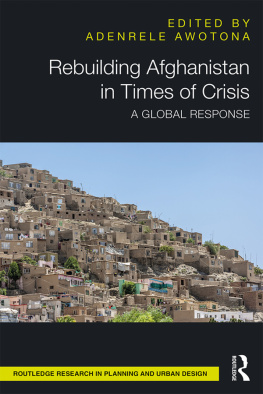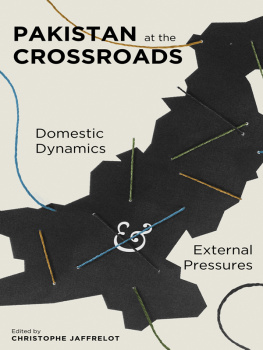Security, Development, and Violence in Afghanistan
Security, Development, and Violence in Afghanistan provides a unique insight into the lived realities of the international intervention in Afghanistan and highlights the diversity, relationships, and interdependence of various groups including both external actors and Afghan communities. Analysis of the international intervention in Afghanistan following the post 9/11 invasion in 2001, one of the largest and most expensive in history, tends to focus on the perspective of organisational dynamics and policies or external actors. Drawing on the authors five years of experience living, researching and working in Afghanistan, this book uses ethnographic methodologies to explore the micro-level interactions between different actors, showing how communities, local leaders, aid workers, UN officials, military and others navigated shifting security, development, and conflict dynamics.
Starting with a contextual introduction to the intervention and the key debates surrounding it, this book goes on to explore the stories of security, development, and violence as constructed through official policy discourse, and then through the lived experiences of interveners and local actors. The book weaves a compelling narrative which links local and global issues and focuses on the everyday practices, relationships and acts of resistance which take place in two provinces of Afghanistan. Finally, the author highlights what this books findings mean both for what we know about Afghanistan and for how we understand international interventions and the everyday dynamics between actors who live and work in spaces of conflict.
Security, Development, and Violence in Afghanistan: Everyday Stories of Intervention will be of considerable interest to scholars and professionals with an interest in Afghanistan, aid work, humanitarian intervention, development studies, and peace and conflict studies.
Althea-Maria Rivas is a Lecturer at the School of African and Oriental Studies (SOAS), University of London in Development Studies. Her work focuses on the politics of violence, humanitarian intervention, post-conflict reconstruction, and transitional justice. Her academic work is complemented by 12 years of professional experience in diplomacy, development, gender relations, and equality and humanitarian action in Central Asia and East and West Africa.
Routledge Explorations in Development Studies
This Development Studies series features innovative and original research at the regional and global scale. It promotes interdisciplinary scholarly works drawing on a wide spectrum of subject areas, in particular politics, health, economics, rural and urban studies, sociology, environment, anthropology, and conflict studies.
Topics of particular interest are globalisation; emerging powers; children and youth; cities; education; media and communication; technology development; and climate change.
In terms of theory and method, rather than basing itself on any orthodoxy, the series draws broadly on the tool kit of the social sciences in general, emphasising comparison, the analysis of the structure and processes, and the application of qualitative and quantitative methods.
Practices of Citizenship in East Africa
Perspectives from Philosophical Pragmatism
Edited by Katariina Holma and Tiina Kontinen
Political Financing in Developing Countries
A Case from Ghana
Joseph Luna
Dilemmas of Regional and Local Development
Edited by Jerzy Baski
Security, Development and Violence in Afghanistan
Everyday Stories of Intervention
Althea-Maria Rivas
Economic Development in Ghana and Malaysia
A Comparative Analysis
Samuel K. Andoh, Bernice J. deGannes Scott, and Grace Ofori-Abebrese
Security, Development, and Violence in Afghanistan
Everyday Stories of Intervention
Althea-Maria Rivas
First published 2020
by Routledge
2 Park Square, Milton Park, Abingdon, Oxon OX14 4RN
and by Routledge
52 Vanderbilt Avenue, New York, NY 10017
Routledge is an imprint of the Taylor & Francis Group, an informa business
2020 Althea-Maria Rivas
The right of Althea-Maria Rivas to be identified as author of this work has been asserted by her in accordance with sections 77 and 78 of the Copyright, Designs and Patents Act 1988.
All rights reserved. No part of this book may be reprinted or reproduced or utilised in any form or by any electronic, mechanical, or other means, now known or hereafter invented, including photocopying and recording, or in any information storage or retrieval system, without permission in writing from the publishers.
Trademark notice: Product or corporate names may be trademarks or registered trademarks, and are used only for identification and explanation without intent to infringe.
British Library Cataloguing-in-Publication Data
A catalogue record for this book is available from the British Library
Library of Congress Cataloging-in-Publication Data
Names: Rivas, Althea-Maria, author.
Title: Security, development and violence in Afghanistan : everyday stories of intervention / Althea-Maria Rivas.
Description: New York: Routledge, 2020. |
Series: Routledge explorations in development studies | Includes bibliographical references and index. |
Identifiers: LCCN 2019056538 (print) | LCCN 2019056539 (ebook) | ISBN 9781138234642 (hardback) | ISBN 9781315306438 (ebook)
Subjects: LCSH: Internal securityAfghanistan. | Postwar reconstructionAfghanistan. | Economic developmentAfghanistan. | TerrorismAfghanistanPrevention.
Classification: LCC HV8242.6.A3 R58 2020 (print) | LCC HV8242.6.A3 (ebook) | DDC 363.3209581dc23
LC record available at https://lccn.loc.gov/2019056538
LC ebook record available at https://lccn.loc.gov/2019056539
ISBN: 978-1-138-23464-2 (hbk)
ISBN: 978-1-315-30643-8 (ebk)
Typeset in Times New Roman
by Wearset Ltd, Boldon, Tyne and Wear
Always for Kathleen and Alriguez
Contents
The writing of this book has taken several years since the findings from the research project were first compiled into a doctoral thesis. The journey was enabled through the support and encouragement of many people. I would like to thank all of the people who shared their perspectives and stories with me, and who gave freely of their time. Their candour and cooperation allowed me to gain great insights into the questions that I was exploring, their everyday realities, and my own experiences. This research could not have taken place without the assistance of the organisations in Afghanistan who hosted me during my time there. I am indebted to my research team Wais, Abdul, and Naila, whose friendship, reflections, and humour were invaluable throughout my time in Afghanistan. I would like to thank my family and friends who assisted, advised, and supported this project intellectually and emotionally. In particular, I would like to express my enormous gratitude to Divya Toila-Kelley for her encouragement to get this done, and to Falana Huggins, Caroline Falaiye, Sui-Mee Chan, Natasha Gordon-Chipembre, and Nadya Ali who were never too busy to review a chapter, provide honest feedback and make me laugh, and for their excellent proofreading skills. Special thanks go to Roger Saul for his constant reassurance, friendship, and intellectual engagement over the last two decades and to Ruth Saul for always being a bright light and a source of warmth and encouragement. Finally, to Kathleen, Rodriguez, and Alriguez Rivas, thank you for everything.

